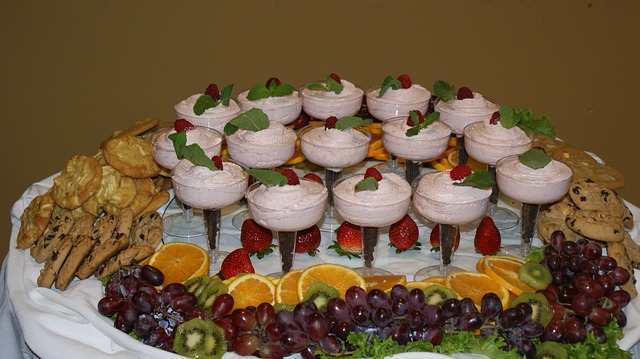Not once or twice, sometimes you have to deal with a bloated stomach, hours after a meal. Nothing is as disgusting as eating to your fill, only to get into a struggling with an ‘inflated’ stomach. May be you have yourself to blame. However, the food you ate is probably the reason behind the hard time. Here are a few foods that are notorious for gas.
Vegetables
The sugars in some vegetables can lead to intestinal gas as they’re digested. Onions and artichokes contain fructose, a type of sugar, while another sugar, raffinose, is found in asparagus, brussels sprouts, broccoli, and cabbage, among others. Vegetables that have soluble fiber, like peas, can cause gas as they’re digested in the large intestine. Those with insoluble fiber should pass through without discomfort or excessive gas.
 Fruits
Fruits
Some fruits contain another sugar, called sorbitol, which causes excessive gas. The biggest culprits include prunes, apples, peaches, and pears. Sugar-free gum and candy are sweetened with sorbitol, which is why they can lead to excessive gas, too. Fruits also contain soluble fiber, which when digested in the large intestine produces gas as a byproduct.
Milk and Dairy Products
Milk and other dairy products contain a sugar called lactose, which can be difficult for your digestive tract to process if your body doesn’t have enough of the enzyme lactase. Cheese, ice cream, and milk all contain lactose, and may cause excessive gas in people. Those with lactose intolerance may need to skip these foods to avoid intestinal gas and belly pain.
Sourced From: http://www.everydayhealth.com/digestive-health-pictures/7-top-gas-producing-foods.aspx
Quite a good number of foods will give you unbearable experience with gas taking a toll on your stomach. What is interesting is that there are other foods which can help you get rid of such gas and make you feel way too better that you will forget you had an upset stomach. Dandlion greens, pineapple and papaya among other gas-fighting foods can get you sorted easy.
Dandelion Greens
Dandelion greens pack a bloat-free punch by acting as a diuretic and ridding the body of excess water, according to the University of Maryland Medical Center. Dandelion greens also prevent gas by increasing stomach acid production and stimulating digestion, according to naturopathic doctor Dr. Ivy Branin from Simplicity Health Associates in New York City. “Stomach acid is crucial in proper digestion,” said Branin. “If foods are properly digested, gas and bloating are prevented.”
Pineapple and papaya
Their ability to break down proteins in meat not only make pineapple and papaya natural meat tenderizers (try Taste of Home’s Marinated Pork Medallions recipe), but these enzyme-rich foods can also ease digestion by helping to break down proteins during digestion, according to Branin. The longer it takes to break down these proteins, the more likely it is that you will experience the feeling of fullness and bloating, said Branin. What’s more, if the undigested proteins enter the small intestine, they’ll begin to putrefy and cause gas.
Chamomile tea
Another carminative herb known to prevent and eliminate gas is chamomile, according to research published in Molecular Medicine Reports. Branin recommends drinking chamomile as a strong tea (2 bags steeped for 15 to 20 minutes) or a liquid extract taken before meals. “I recommend this to many of my patients who suffer from gas with great results,” she said.
Sourced from: http://www.huffingtonpost.com/2015/02/23/foods-that-relieve-gas_n_6718256.html
You do not want to take a meal, fearing that you may end up with gas-filled stomach moments later. Prevention is always the better cure, and with food gas, the case is no any different. Try to watch your eating habit to prevent getting the horrible gas fill your stomach, which is not so comforting to put up with.
Drink before meals.
If you drink liquids with your meals, you lose stomach acids and can’t break down food as well, Novey says. Try drinking about 30 minutes before a meal to help your stomach digest better.
Eat and drink slowly.
When you eat or drink fast, you can swallow a lot of air, which can cause gas, says Bickston. The simple solution?, Slow down when you eat. If you have dentures, check with your dentist to be sure they fit properly so you’re not gasping air while eating.
Take over-the-counter digestive aids.
Digestive enzymes are available as over-the-counter supplements. “I recommend going to the health-food store and getting a digestive enzyme,” says Novey. “You can take one or two.
Avoid artificial sweeteners. Sorbitol and related sugar alcohols used in many sugar-free versions of foods can also aggravate gas. However, the sugar substitutes that are found at a typical coffee stand or in popular soft drinks are not the kinds that cause gas.
Sourced from: http://www.everydayhealth.com/digestive-health/treatment-for-excessive-gas.aspx